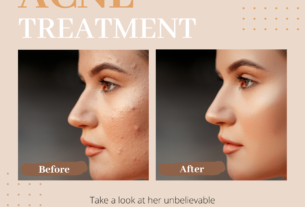Introduction to Magic Mushrooms
Magic mushrooms, often referred to as “shrooms,” have fascinated humanity for centuries. These unique fungi hold secrets that can alter perceptions and expand consciousness. From ancient rituals to modern therapeutic uses, the allure of magic mushrooms is undeniable. But what happens when we start to peel back the layers? Is it just the chemical compounds at play, or does our mindset significantly influence their effects? In this exploration of magic mushrooms and the intriguing placebo effect, we’ll delve into how much of these experiences stem from our minds versus the substances themselves. Join us on a journey through history, science, personal stories, and potential benefits as we uncover the truth behind shrooms edibles and their impact on mental health.
History of Magic Mushrooms and Its Effects on the Mind
Magic mushrooms, or shrooms edibles, have a rich history that dates back thousands of years. Indigenous cultures in Mesoamerica revered these fungi for their mystical properties. They used them in spiritual ceremonies to connect with the divine and explore altered states of consciousness.
The primary psychoactive compound found in magic mushrooms is psilocybin. This substance impacts serotonin receptors in the brain, leading to profound changes in perception and cognition. Users often report visual distortions and enhanced emotional experiences.
In the 1950s and 60s, interest surged among Western societies as researchers began exploring their therapeutic potential. Studies indicated that psilocybin could foster creativity and introspection.
Despite legal restrictions, modern research has rekindled curiosity about shrooms edibles for mental health treatments. As science delves deeper into their effects on the mind, society grapples with balancing ancient wisdom against contemporary understanding.
Understanding the Placebo Effect
The placebo effect is a fascinating phenomenon where a person’s belief in treatment leads to real physiological changes. It’s the mind’s power that often influences how we feel or react to substances, whether they’re medications or shrooms edibles.
When individuals take something they believe can alleviate their symptoms, their brain may trigger pathways that enhance feelings of well-being. This suggests our perceptions and beliefs can significantly shape our experiences with various treatments.
Interestingly, the context surrounding the experience matters too—the environment, expectations, and even the people involved can amplify this effect.
In studies involving magic mushrooms, participants often report profound insights or emotional healing simply because they anticipate these outcomes. This interplay between mind and matter opens up intriguing questions about mental health therapies today and how mindset might reshape therapeutic practices moving forward.
The Science Behind Magic Mushrooms and the Placebo Effect
Research into magic mushrooms reveals fascinating interactions between their active compound, psilocybin, and our brain. Psilocybin alters serotonin receptors, leading to changes in mood and perception. This biochemical response can create profound shifts in consciousness.
But what role does the placebo effect play? Studies indicate that a person’s expectations significantly influence their experience with shrooms edibles. If someone anticipates spiritual insights or emotional healing, they may be more likely to achieve those outcomes—regardless of the actual dosage consumed.
Neuroscience shows how these two elements intertwine. The brain’s neural pathways adapt based on belief systems alongside chemical reactions from psychedelics. It raises intriguing questions about mental health treatment and personal agency in healing journeys.
Understanding this relationship opens doors for future research while shedding light on how mindset can amplify—or even diminish—experiences with magic mushrooms. The mind is indeed a powerful player in shaping reality.
Personal Experiences with Magic Mushrooms and the Placebo Effect
Many individuals report transformative experiences with magic mushrooms, often citing a profound connection to nature and themselves. These moments can feel incredibly real, sometimes leading to lasting changes in perspective.
Interestingly, some users attribute their benefits not just to the compounds within shrooms but also to their mindset going into the experience. This raises questions about the power of belief and expectation.
For instance, one person might approach a trip seeking healing from anxiety while another may be curious without specific intentions. The former often reports deeper insights and emotional release than the latter.
Personal narratives reveal that positive outcomes frequently hinge on setting and mental preparation. This interplay between anticipation and actual effects prompts further exploration into how much our minds shape these psychedelic journeys.
Potential Benefits and Risks of Using Magic Mushrooms for Mental Health
Magic mushrooms, often consumed as shrooms edibles, have gained attention for their potential mental health benefits. Users report enhanced emotional clarity and increased openness to new experiences. Some studies suggest that psilocybin can help alleviate symptoms of depression and anxiety, providing a fresh perspective on long-standing issues.
However, not everything is rosy in the world of magic mushrooms. Risks do exist. The psychedelic experience can be unpredictable, leading to challenging trips that may cause paranoia or confusion. For some individuals with a history of mental illness, these effects might exacerbate existing conditions.
Additionally, the legality surrounding shrooms adds complexity to their use in therapeutic settings. Without proper guidance and support systems in place, self-treatment can lead to unintended consequences that outweigh any perceived benefits. Mindfulness and caution are essential when exploring this potent substance for mental health purposes.
Conclusion: Finding Balance Between Mind and Medicine
The exploration of magic mushrooms and their potential effects on mental health continues to gain traction. As we delve deeper into the relationship between shrooms edibles and the placebo effect, it becomes clear that our mindset can play a crucial role in shaping experiences.
Magic mushrooms have a rich history intertwined with various cultures, often used for spiritual or therapeutic purposes. Understanding how these substances interact with the mind opens new avenues for research and personal insight.
While some studies suggest significant benefits from psilocybin—the active compound in magic mushrooms—it’s essential to remember that individual experiences may vary widely. The placebo effect demonstrates just how powerful belief can be when combined with such treatments, potentially amplifying results.
As more people share their journeys with shrooms edibles, we see both positive testimonials and cautionary tales regarding expectations versus reality. This duality emphasizes the importance of approaching such practices thoughtfully while remaining aware of possible risks involved.
Striking a balance between harnessing the power of psychedelics like magic mushrooms and understanding one’s mental landscape is vital for those considering this path. By fostering awareness around both mindsets and medicinal use, individuals can better navigate their own healing journeys while contributing to broader conversations about alternative therapies in mental health care.




